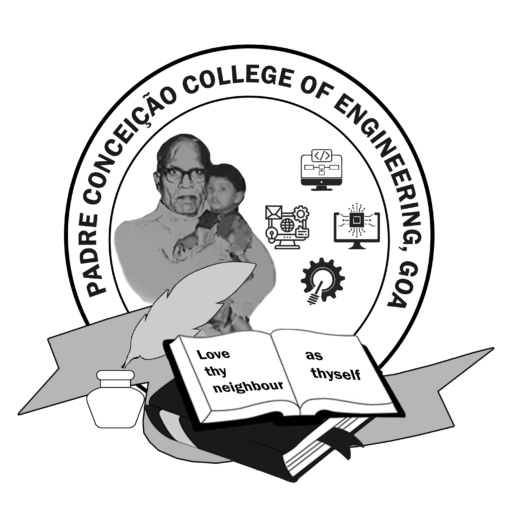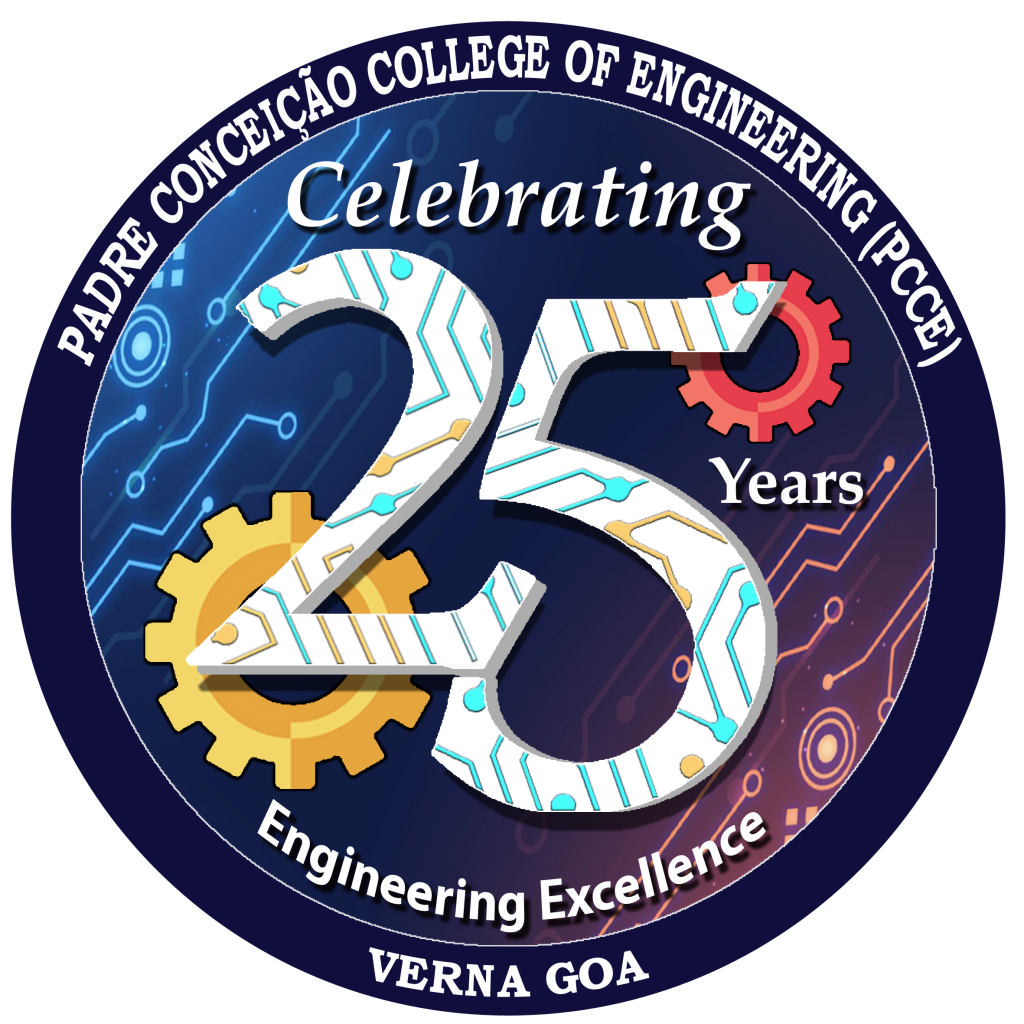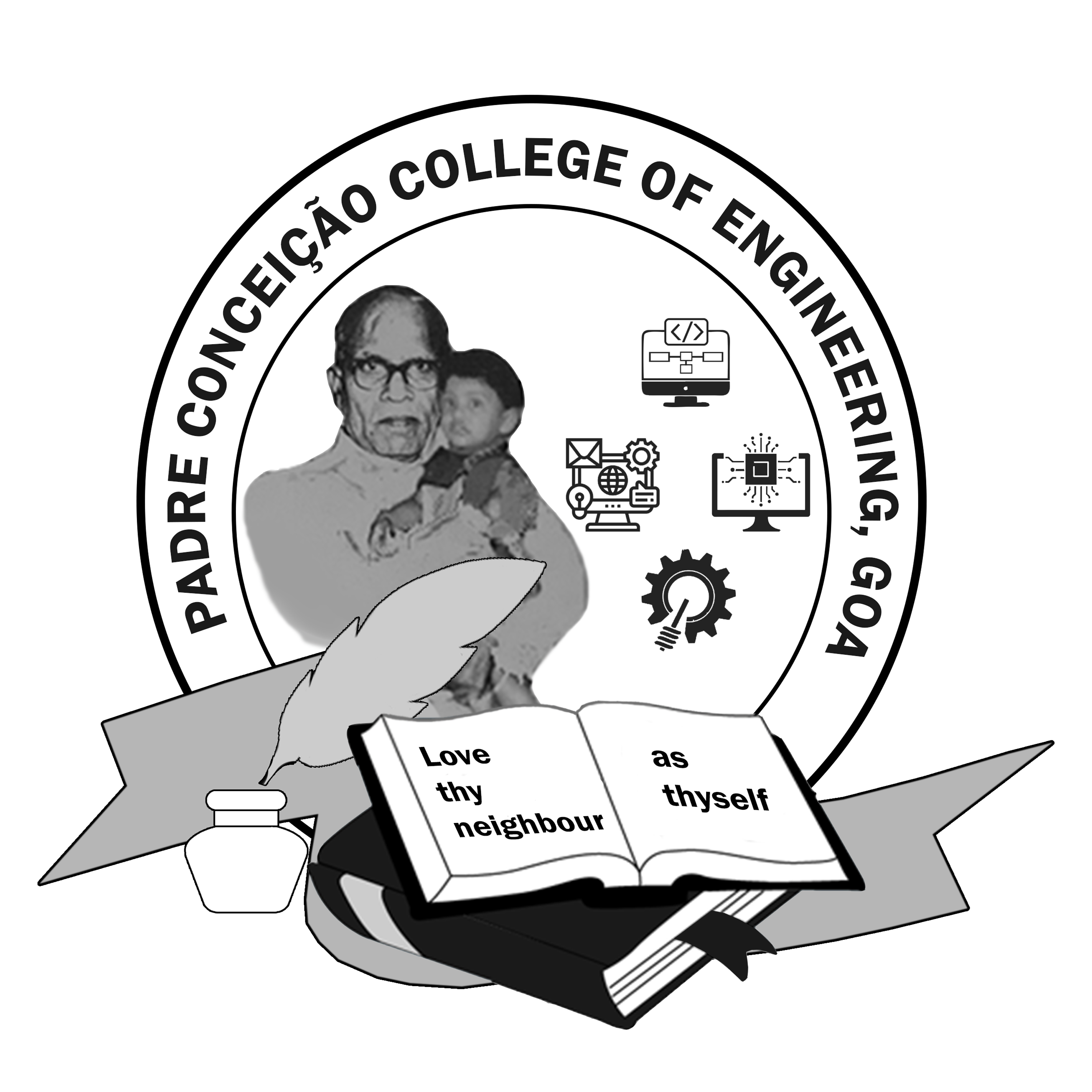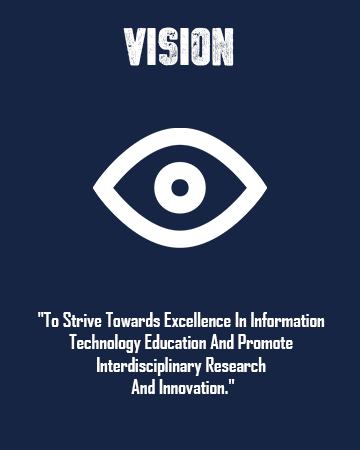
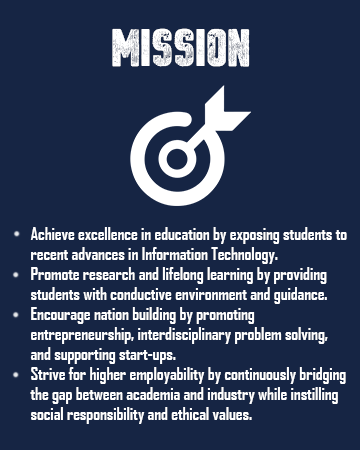


- The Master of Engineering in Information Technology (Internet Technology) is an interdisciplinary program with specialization in Internet Technology and Communications.
- The course was started in 2004.
- The course is affiliated to Goa University and the Scheme of Instructions and Examination and detailed Syllabi is finalized and revised periodically by Goa University through the Board of Studies in Information Technology.
- The courses offered to the students include the latest emerging technologies and are specially designed to meet the growing demands of the Industry.
- Some of the courses offered are Advanced Computer Mathematics, Information Storage and Retrieval, Advanced Database Management, Design Patterns and J2EE, Data Mining and Web Housing, Artificial Intelligence and Neural Networks, Internet Security, Embedded Systems, Web Services and Cloud Computing, Bio Informatics, Natural Language Processing, Software Development Frameworks using .Net, Advanced Image Processing, Real Time Systems and Mobile Application Development.
- To impart Quality Education and to grow into a Center of Excellence in the field of Information Technology.
- To deliver quality technical education that fosters research and innovation.
- To provide a vibrant learning environment for all-round development.
- To establish strong industry-academia collaboration for better career prospects.
The Department of Information Technology Engineering is committed to graduating engineers who,
I. Are competent, creative, and highly valued professionals in industry, academia, or government.
II. Demonstrate application based technical proficiency, within and beyond the curriculum, with high competency for employment or entrepreneurship.
III. Are flexible and adaptable in the workplace and effectively handle leadership and teamwork opportunities.
IV. Have an attitude and aptitude for research and show good communication, time management and learning skills.
V. Practice high standards of professional ethics with a positive mindset and societal concern.
A graduate of the Information Technology program will be able to:
- Demonstrate competence in applying fundamental knowledge of mathematics, basic sciences, social sciences, electrical sciences and other interdisciplinary subjects in solving engineering problems.
- Identify, formulate, analyses and solve complex Information Technology problems.
- Conduct investigations, interpret data and provide suitable conclusions to problems in information technology.
- Design and develop software and products that meet desired specifications and requirements for different architectures and platforms.
- Design and develop software and products that meet desired specifications and requirements for different architectures and platforms.
- Function effectively as an individual or in a group, in the capacity of a leader, with discipline and integrity.
- Communicate effectively with good project management principles, clarity of ideas and entrepreneurship skills.
- Demonstrate commitment to professionalism in all responsibilities handled with an understanding of their role in protecting the public and the public interest.
- Understand the impact of solutions in the environmental context and promote sustainable development.
- Demonstrate professional ethics, accountability and equity in all responsibilities or roles undertaken.
- Incorporate the studied practices in economics and business, to handle risk and change in IT projects, with a clear understanding of the advantages and limitations.
- Acquire the capability to engage in life-long learning and participate and succeed in competitive challenges in India and abroad.
A graduate of the Information Technology program at P.C.C.E. will have acquired:
PSO1: Professional Skills: The ability to apply the standard practices studied in programming, system software, computer architecture, database systems, communications, networking and project management, using modern tools.
PSO2: Problem-Solving Skills: The capability to build quality solutions to real-world problems using emerging technologies for data analytics, machine learning, IOT based products, multimedia processing,distributed computing and system security.
